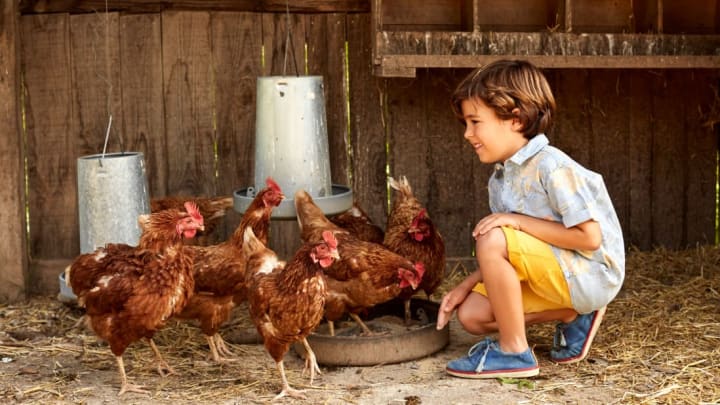The temptation to snuggle a chicken is apparently too strong for some poultry owners, so they're being advised by the Centers for Disease Control and Prevention (CDC) to avoid displays of affection toward their birds.
The warning comes after 163 cases of Salmonella poisoning were reported in 43 states that have been linked to fraternizing with chickens in backyard coops. Touching, petting, or kissing a chicken carries risks of contracting the bacteria, which is common in chickens and can cause diarrhea and fever in humans.
A chicken’s appearance has nothing to do with their potential to carry the germ. Though seemingly healthy, the birds can harbor Salmonella on their feathers, beaks, feet, and droppings. A person who touches a chicken, their eggs, or anything in their environment and then their own mouth provides an opportunity for the bacteria to spread.
“Don’t kiss or snuggle backyard poultry, and don’t eat or drink around them,” the CDC cautions. “This can spread Salmonella germs to your mouth and make you sick.”
Because a third of the 163 cases involve children, it’s important for adults to supervise their child’s interaction with any backyard birds and prohibit kids under 5 from touching them. In all cases, washing your hands and avoiding touching your face is key. It’s also advisable to take off shoes worn in the coop before entering your house.
The advice comes as the 2020 pandemic saw an uptick in the number of amateur or hobbyist chicken farmers raising chickens, either as a pastime or in the event the commercial food chain slowed down. Mill Valley Chickens, which sells chickens and supplies in California, reported in December 2020 that sales were up 400 percent over 2019. The surge in interest was connected to 17 multi-state outbreaks of Salmonella last year.
Salmonella spreads easily among chickens. Infected hens can pass it to offspring, and animal droppings can contaminate their feed.
[h/t NBC News]
